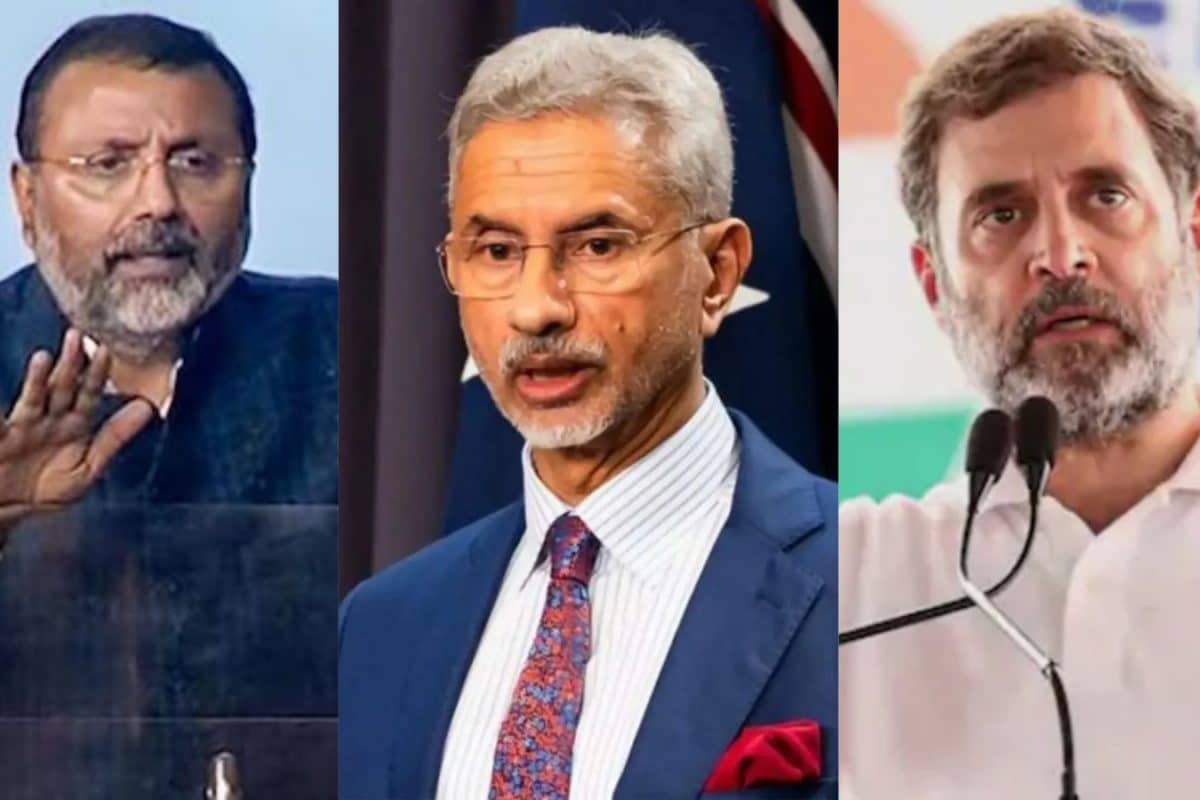

The political arena is heating up as the Bharatiya Janata Party (BJP) and the Indian National Congress engage in a fresh war of words. BJP MP Nishikant Dubey has recently invoked a 1991 agreement between India and Pakistan to criticize Congress leader Rahul Gandhi, sparking a renewed debate over national security and historical political decisions.
Dubey's attack centers around a military pact allegedly established in 1991 during a period when the Congress party was in power. He claims that this agreement involved the sharing of information regarding military movements between India and Pakistan. Taking to social media platform X, Dubey questioned whether this agreement constituted "treason," suggesting that the Congress party had, at one point, supported a level of security transparency with Pakistan that is now deemed questionable.
The BJP's line of attack suggests that Congress was being soft on Pakistan and jeopardizing national security. Dubey's comments have ignited a fierce response from Congress, with party members questioning the timing and motivation behind raising this decades-old agreement. Some Congress leaders argue that the BJP is attempting to divert attention from current issues and failures by distorting historical facts and engaging in political mudslinging. They claim that the agreement was a standard protocol aimed at de-escalating tensions and preventing accidental conflicts between the two nations.
The specific details and context surrounding the 1991 agreement are now under scrutiny. It is likely that the agreement, if it existed, was intended to build confidence and transparency between the two countries. Such agreements are not uncommon in international relations, especially between neighboring countries with a history of conflict. The intention is often to reduce the risk of miscommunication and unintended escalation by establishing channels for information exchange and verification.
However, the BJP's attempt to frame this agreement as a betrayal of national interests highlights the deep-seated mistrust and historical animosity that continue to define India-Pakistan relations. By questioning the Congress party's past decisions, the BJP aims to portray itself as the sole protector of India's security and sovereignty.
The current political climate further exacerbates this conflict. With ongoing tensions at the border and frequent accusations of cross-border terrorism, any suggestion of cooperation or transparency with Pakistan is likely to be viewed with suspicion by the public. The BJP is strategically tapping into these sentiments to gain political mileage.
This recent spat also reflects the ongoing battle for ideological supremacy between the BJP and Congress. The BJP, with its emphasis on nationalism and a strong stance on security issues, seeks to undermine the Congress party's credibility by portraying it as weak and indecisive in matters of national security. Congress, on the other hand, accuses the BJP of divisive politics and of using national security concerns to mask its own failures in governance and economic management.
As the debate intensifies, it remains to be seen how the public will react to these accusations and counter-accusations. The focus on historical agreements and past decisions serves as a reminder of the complex and often contentious relationship between India and Pakistan, and how these dynamics continue to shape domestic politics in India. The coming days will likely see further clarification and rebuttals from both parties as they seek to control the narrative and influence public opinion.